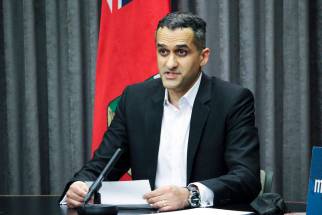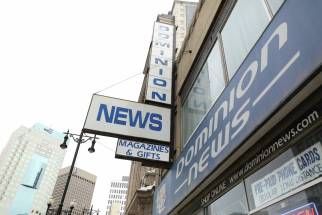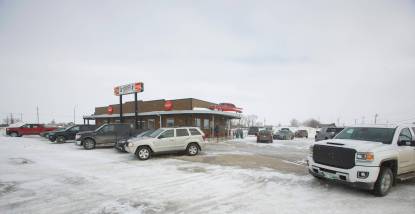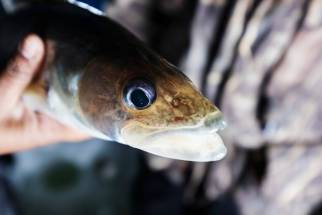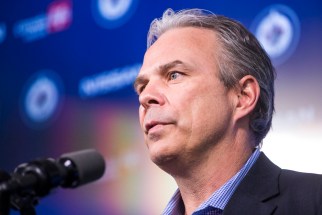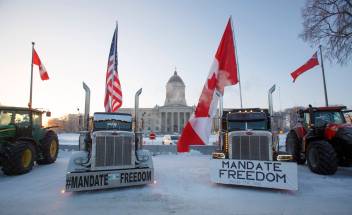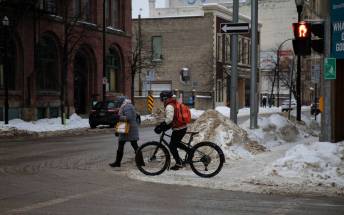Rural test kit courier cost questions rev up
Read this article for free:
or
Already have an account? Log in here »
To continue reading, please subscribe:
Monthly Digital Subscription
$0 for the first 4 weeks*
- Enjoy unlimited reading on winnipegfreepress.com
- Read the E-Edition, our digital replica newspaper
- Access News Break, our award-winning app
- Play interactive puzzles
*No charge for 4 weeks then price increases to the regular rate of $19.00 plus GST every four weeks. Offer available to new and qualified returning subscribers only. Cancel any time.
Monthly Digital Subscription
$4.75/week*
- Enjoy unlimited reading on winnipegfreepress.com
- Read the E-Edition, our digital replica newspaper
- Access News Break, our award-winning app
- Play interactive puzzles
*Billed as $19 plus GST every four weeks. Cancel any time.
To continue reading, please subscribe:
Add Free Press access to your Brandon Sun subscription for only an additional
$1 for the first 4 weeks*
*Your next subscription payment will increase by $1.00 and you will be charged $16.99 plus GST for four weeks. After four weeks, your payment will increase to $23.99 plus GST every four weeks.
Read unlimited articles for free today:
or
Already have an account? Log in here »
Hey there, time traveller!
This article was published 09/02/2022 (1407 days ago), so information in it may no longer be current.
OTTAWA — The federal government likely spent more than $1,000 to have a Winnipeg taxi pick up a COVID-19 test sample, as part of border-screening program that continues to baffle rural Manitobans.
“Any reasonable person would say, ‘Holy cow, they’re sending a cab 660 kilometres (round trip).’ Like, that is a crazy amount of money,” said Jon Hawtin, who lives on a farm just south of Miniota.
Hawtin and his family headed back from a Montana rodeo this weekend, crossing Sunday at the North Portal border station in southeast Saskatchewan.

Four of the five people he was travelling with were randomly selected for a take-home test, as part of a federal program that has people swab their own noses during a video call and have the samples sent to a private lab.
Because they crossed in Saskatchewan, they were given a LifeLabs test, which handles samples in that province and British Columbia.
Other firms serve different areas, such as Dynacare in Manitoba.
As a result, Hawtin said LifeLabs instructed him to mark his province as B.C., so a courier could collect the test and mail it to a lab in that province.
A medical employee watched them do the swab via video, and said if FedEx didn’t serve Hawtin’s area, he could drop off the samples at the nearest Shoppers Drug Mart — which would be a 225-km return drive to Brandon.
Hawtin called LifeLabs and said, after hours on hold, the company arranged to have a courier collect the samples.
On Tuesday night, a dispatcher with Unicity Taxi in Winnipeg phoned, asking for an address for Hawtin’s farm, which sits a 330-km drive from the capital city.
That was followed by a series of calls early Wednesday from Unicity staff, in which Hawtin tried explaining how to locate his farmstead using the quarter-section-township-range grid system.
Ultimately, he offered to meet the taxi on the side of Highway 16, as the driver was clearly confused and Hawtin feared the cabbie — and his assistant in the passenger seat — would have had even more trouble on gravel roads.
“I felt bad for them; they must have had to leave at 5:30 a.m.,” he said, hours after the encounter.
“Out of curiosity, I asked: ‘Do you guys charge a flat rate?’ and they said, ‘No, it’s on a meter.’”
The Unicity app suggests such a return trip would have cost around $1,075.
“It didn’t seem like they (officials) had a plan in place at all,” said Hawtin, who retired after 25 years in the military.
He said any operational planning exercise would have scoped out how the program would work in rural Canada and found alternatives, such as having the sample collected at the border station.
The local MP says it doesn’t take military precision to come up with a better program.
“Any normal person would look at that and say, ‘That’s not right,” said Conservative MP Dan Mazier (Dauphin—Swan River—Neepawa).
“It’s a terrible waste of money and it just proves how out of touch this government is when it comes to planning for rural Canada.”
Last month, the Free Press reported on a Swan River resident who was stunned when Dynacare sent a Winnipeg courier on a 10-hour return trip to fetch a test sample.
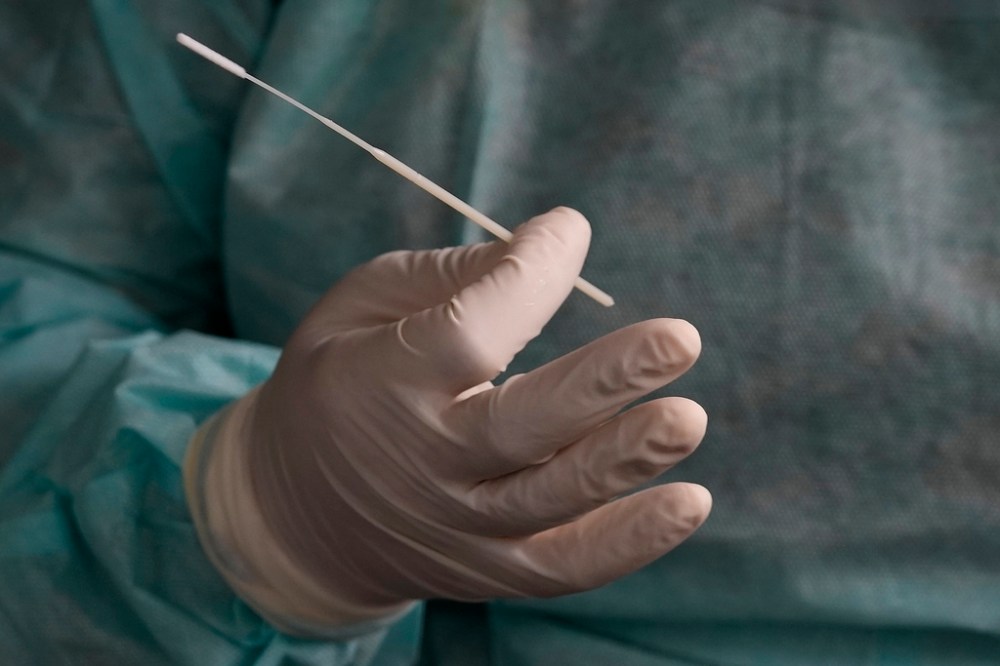
The federal government has refused to divulge how much it pays private labs to have couriers drive for hours to rural areas to collect COVID-19 test swabs.
“It is the testing provider who determines, and co-ordinates, the method of shipping to their laboratories for these virtually observed test samples, within the area that a given laboratory services,” the Public Health Agency of Canada wrote in a response earlier this month.
The agency offered no response to whether it’s a prudent use of taxpayer funds to have couriers drive hours to collect samples.
The Liberals have earmarked $631 million for three companies to administer the programs at land borders and airports.
Last month, Canada’s chief public health officer said the border tests are “a capacity drain on the system as a whole,” but said it might still be useful to test a random sampling of travellers.
Mazier said he’d like to see the scientific evidence that justifies having asymptomatic vaccinated people, who had a PCR test within 48 hours of crossing into Canada from the United States, selected for another swab test.
Under the program, those people can continue about their business until they get results, as long as they monitor for symptoms and avoid high-risk settings (such as personal care homes). Yet, they can get a hefty fine if they don’t actually do the take-home test.
“What’s the science behind that, never mind about greenhouse gas emissions, never mind about all the waste,” said Mazier.
Hawtin’s son’s girlfriend, whom they dropped off in Moosomin, Sask., had her test picked up by a Regina-based courier, who would have made a 450-km return trip.
“To me, it just seems ridiculous, the process they have put in place for this,” Hawtin said.
“When you start adding up all the money they’re spending on cabs and extra couriers, it’s astonishing.”
dylan.robertson@freepress.mb.ca
History
Updated on Wednesday, February 9, 2022 8:01 PM CST: Fixes typo in cutline
Updated on Wednesday, February 9, 2022 8:24 PM CST: Fixes typo.
Updated on Thursday, February 10, 2022 7:18 AM CST: Corrects spelling of Hawtin

